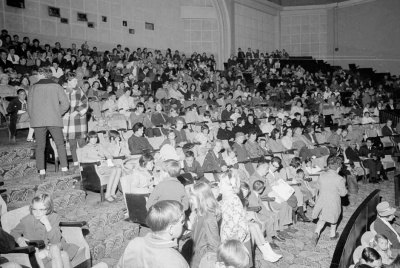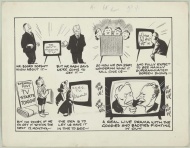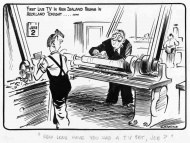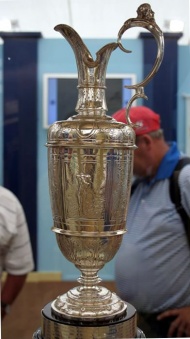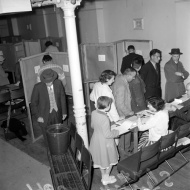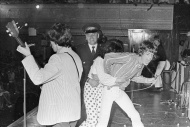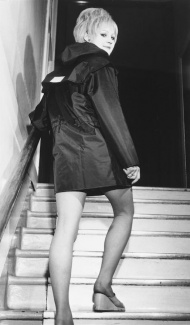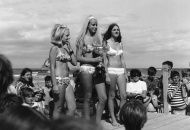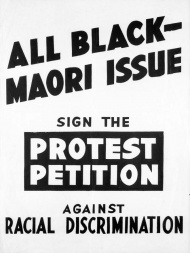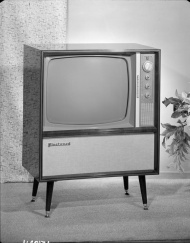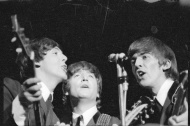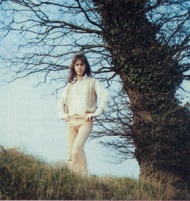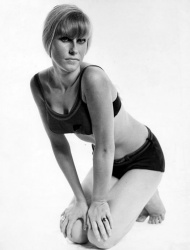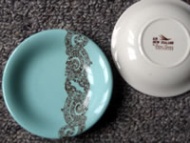Events In History
-
 10 April 1968Sinking of the Wahine
10 April 1968Sinking of the WahineThe ferry Wahine, en route from Lyttelton with 734 passengers and crew on board, struck Barrett Reef at the entrance to Wellington Harbour during a ferocious storm. Fifty-two lives were lost. Read more...
-
 9 October 1967The end of the 'six o'clock swill'
9 October 1967The end of the 'six o'clock swill'Six p.m. closing for pubs was introduced as a 'temporary' wartime measure in 1917. The resulting 'six-o'clock swill' encouraged binge drinking as patrons tried to drink their fill before closing time. Read more...
-
 10 July 1967NZ adopts decimal currency
10 July 1967NZ adopts decimal currencyPounds, shillings and pence were replaced with dollars and cents − 27 million new banknotes and 165 million new coins. Read more...
-
 10 February 1967End of free school milk
10 February 1967End of free school milkThe school milk scheme was begun in 1937 as part of the first Labour government's strategy to improve child health. Read more...
-
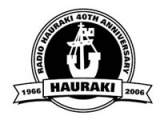 4 December 1966Radio Hauraki rules the waves
4 December 1966Radio Hauraki rules the wavesThe state's monopoly of commercial radio broadcasting was challenged by the pirate station Radio Hauraki's first scheduled transmission from the vessel Tiri in the Colville Channel. Read more...
-
 21 June 1964The Beatles land in NZ
21 June 1964The Beatles land in NZBeatlemania hit New Zealand when 7000 hysterical fans greeted the Fab Four in Wellington during their 'Far East' tour. Read more...
-
 2 May 1964NZ's last electric tram trip
2 May 1964NZ's last electric tram tripTram no. 252, displaying the message ‘end of the line’, travelled from Thorndon to Newtown zoo, bringing to an end the use of electric trams in New Zealand. Read more...
-
 7 December 1963Bassett Road machine-gun murders
7 December 1963Bassett Road machine-gun murdersThe bullet-ridden bodies of Frederick George Walker and Kevin James Speight were found in a house at 115 Bassett Rd, Remuera, Auckland. Ron Jorgensen and John Gillies were convicted of the killings. Read more...
-
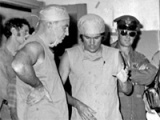 25 April 1963NZ medics start work in South Vietnam
25 April 1963NZ medics start work in South VietnamOn Anzac Day 1963, a six-strong New Zealand civilian surgical team arrived in Qui Nhon, South Vietnam as part of the Colombo Plan assistance programme. Their deployment marked the beginning of New Zealand’s involvement in the Vietnam War. Read more...
-
 26 November 1960'Kiwi Keith' begins 12-year reign as PM
26 November 1960'Kiwi Keith' begins 12-year reign as PMThe National Party, led by Keith Holyoake, swept into power, defeating Walter Nash's Labour Party, which had held office for the previous three years Read more...
-
 1 June 1960NZ's first official TV broadcast
1 June 1960NZ's first official TV broadcastBroadcast from Shortland Street in central Auckland, New Zealand's first official television transmission began at 7.30 p.m. The first night's broadcast lasted just three hours and could only be seen in Auckland. Read more...
Articles
Vietnam War
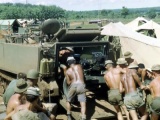
The Vietnam War was New Zealand's longest and most controversial overseas military experience. Although this country's troop commitment and casualties were modest, the conflict aroused widespread protest and condemnation. And for those who fought in Vietnam, it was a tough homecoming.
- Page 1 - The Vietnam WarThe Vietnam War was New Zealand's longest and most controversial overseas military experience. Although this country's troop commitment and casualties were modest, the conflict
The Beatles in New Zealand

When four young Liverpool musicians landed in Wellington on a lazy Sunday afternoon in June 1964, seven days of pandemonium erupted. Young New Zealanders flocked in their thousands to hear or just catch a glimpse of the famous 'Fab Four'.
-
Page 2 – Setting the scene
The Beatles' 1964 tour occurred as New Zealand was undergoing a cultural shift, and many young people swapped their old image for the new 'mod' look.
-
Page 3 – Wellington
Seven thousand screaming fans waited as The Beatles touched down at Wellington airport on 21 June 1964. As the band stepped off the plane, the fans' shrieks drowned out the
-
Page 4 – Auckland
Auckland fans were as riotous as those in Wellington. The Beatles' music went almost unnoticed as everyone commented on the audience.
-
Page 5 – South Island
The Beatles' concerts in Dunedin on 26 June were some of the wildest of the New Zealand tour.
The 1960s

Five decades ago most Kiwis enjoyed a standard of living that was the envy of other nations. During the 1960s the arrival of TV and jet airliners shrank our world, and New Zealanders began to express themselves on a range of international issues, including opposition to the Vietnam War.
-
Page 2 – Overview
Summary of what NZ was like in the 1960s, including our population, economy, popular culture, sporting achievements and technology
-
Page 3 – 1960 - key events
A selection of key events from 1960
-
Page 4 – 1961 - key events
What were the key events in New Zealand history from 1961
-
Page 5 – 1962 - key events
A selection of the key events in New Zealand history from 1962
-
Page 6 – 1963 - key events
A selection of the key events in New Zealand history from 1963
-
Page 7 – 1964 - key events
A selection of the key events in New Zealand history from 1964
-
Page 8 – 1965 - key events
A selection of the key events in New Zealand history from 1965
-
Page 9 – 1966 - key events
A selection of the key events in New Zealand history from 1966
-
Page 10 – 1967 - key events
A selection of the key events in New Zealand history from 1967
-
Page 11 – 1968 - key events
A selection of the key events in New Zealand history from 1968
-
Page 12 – 1969 - key events
A selection of the key events in New Zealand history from 1969
Television in New Zealand

New Zealand’s first non-experimental television transmission went to air on 1 June 1960. To mark five decades of TV, in 2010 we presented five snapshots of Kiwi TV history. Explore pre-1960 experiments, TV news, music shows and modern election coverage - and discover how our own history has been showcased on the small screen.
-
Page 4 – Kiwi music shows on TV
New Zealanders can now view music videos over the internet or on music channels C4 and Juice TV. But after TV was introduced in 1960 several generations of New Zealanders kept
Waitangi Day

Every year on 6 February, New Zealand marks the signing of the Treaty of Waitangi in 1840. For most people, Waitangi Day is a holiday; for many, and especially for Māori, it is a time for reflecting on the Treaty and its place in modern New Zealand.
- Page 4 - Waitangi Day 1960sThe Waitangi Day Act 1960 declared 6 February to be Waitangi Day; a national day of thanksgiving in commemoration of the signing of the Treaty of
Biographies
-
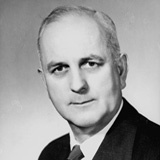 Hanan, Josiah Ralph
Hanan, Josiah Ralph
As Minister of Māori Affairs in the 1960s, Ralph Hanan generally showed understanding of Māori interests and aspirations.
Read more... -
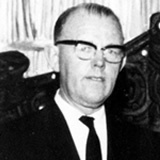 Hunn, Jack Kent
Hunn, Jack Kent
Jack Hunn commissioned a series of wide-ranging studies on Māori population, housing, education, employment, health, crime and land titles.
Read more...
Related keywords
- vietnam war
- keith holyoake
- national party
- prime ministers
- wellington city
- transport
- trams
- frank kitts
- thorndon
- music
- beatles
- popular culture
- malayan emergency
- cold war
- film
- disasters
- wahine disaster
- shipwrecks
- queen elizabeth
- movies
- radio broadcasts
- broadcasting
- famous firsts
- ralph hanan
- maori land
- law
- health
- education
- milk
- jack hunn
- maori housing
- maori health
- maori
- television
- entertainment
- crime
- murder
- alcohol
- six oclock swill
- drink
- prohibition
- economy
- fashion
- auckland city
- walter nash
- cartoon
- parliament
- christchurch
- dunedin
- press
- golf
- bob charles
- voting
- elections
- lyttelton
- roading
- children
- literature
- writing
- maori writing
- state housing
- porirua
- royalty
- rolling stones concert
- nuclear ships
- americans
- norman kirk
- labour party
- advertising
- protest
- public holidays
- waitangi day
- race relations
- food
- cafes
- navy
- lord cobham
- clothing
- motor sport
- the who
- governor-general
- bernard fergusson
- maori leaders
- te atairangikaahu
- king koroki
- kingitanga
- rugby
- springboks
- south africa
- apartheid
- australia
- mount eden prison
- cook islands
- ray columbus
- sport
- all blacks
- maori sport
- TVNZ
- timeline
- statistics
- christmas
- songs
- music month
- howard morrison
- crown lynn
- pottery
- parliament buildings
- 1970s
-
Main image: Standing for the Queen at the movies
For the first two decades of Queen Elizabeth’s reign, New Zealanders stood for the national anthem at the start of every movie session.

